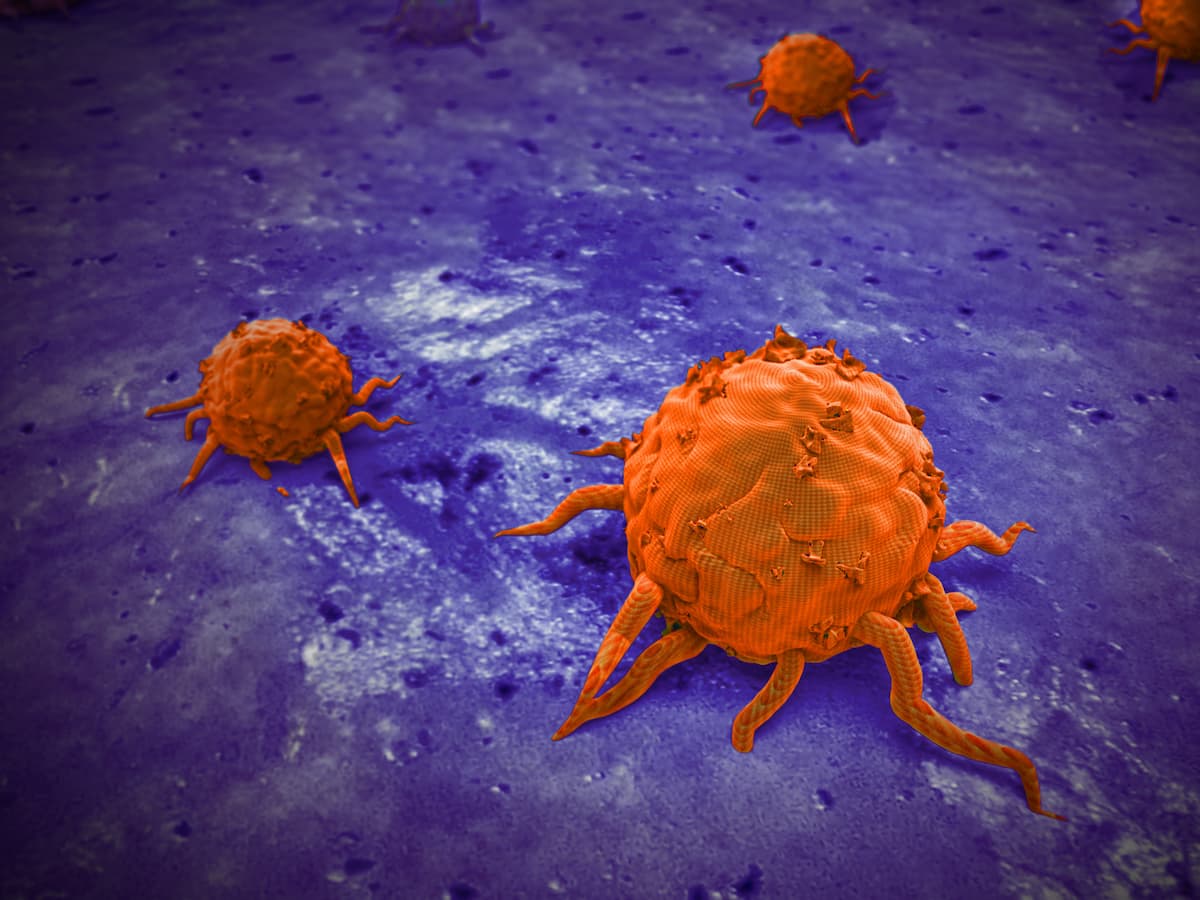Abatacept Combo May Reduce Immunotherapy-Related Myotoxicity in Cancer
Abatacept plus ruxolitinib and screenings for concomitant respiratory muscle failure may be effective in reducing the rate of mortality related to immune checkpoint inhibitor–associated myocarditis among patients with cancer.
A high dose of abatacept (Orencia) with CD86 receptor on circulating monocytes (CD86RO) immune-monitoring and ruxolitinib (Jakafi), corticosteroids, and respiratory muscle involvement management was associated with a decreased risk of death due to immune checkpoint inhibitor–associated myotoxicity vs standard-of-care corticosteroids, according to findings from a study published in Cancer Discovery.1
"While this is not a randomized clinical trial, the significant improvement in outcomes when patients are treated with targeted therapies is very suggestive that [abatacept plus ruxolitinib and screenings for concomitant respiratory muscle failure] is helpful," according to an expert from Sorbonne Université.

In a population of 10 patients who were treated with standard corticosteroids by recommended guidelines, deaths due to immunotherapy-related myotoxicity occurred in 60%, which was noted as being consistent with historical controls. Moreover, 1 patient of 30 who received systemic screening for respiratory muscle involvement plus active ventilation along with ruxolitinib/abatacept died to a myotoxicity-related fatality in the first quartile (Q1; P <.0001).
When investigators restricted the analysis to grade 3 or higher events, immunotherapy-related myotoxicity mortality occurred in 80% (n = 6/8) and 5% (n = 1/22) of patients in each respective group (P <.0001).
Investigators determined that one-third of patients (n = 10/30) receiving the abatacept combination regimen were eligible for elective ventilation. Among 8 patients undergoing ventilation, 6 had complete recoveries with a median weaning time of 17 days (range, 2-111). Moreover, 2 patients were recovering following residual nocturnal ventilation at a follow-up of 6-month.
“While this is not a randomized clinical trial, the significant improvement in outcomes when patients are treated with targeted therapies is very suggestive that this regimen is helpful,” lead author Joe-Elie Salem, MD, PhD, an associate professor at Sorbonne Université and an executive assistant director of one of cardio-metabolism at France’s Clinical Investigation Centers, said in a press release on the study.2
Investigators of this study compared a mechanism-based approach with usual recommended care for reducing patient mortality due to immunotherapy-related myocarditis. The first 10 enrolled patients received expert consensus guidelines treatment including high-dose corticosteroids boluses followed by second-line agents in the event of cortico-resistance.
The mechanism-based approach included high-dose abatacept, real-time CD86RO monitoring, ruxolitinib, lower doses of corticosteroids, and systematic screening for concomitant respiratory muscle failure for the remaining patients.
Three independent investigators assessed all causes of death. Immunotherapy-related myotoxicities were considered severe or grade 3 or higher if patients had severe arrhythmias, heart failure, respiratory muscle failure leading to hypoventilation, or deterioration of bioclinical status despite treatment with corticosteroids.
Of 69 patients who were admitted due to suspected treatment-related myocarditis, 40 had confirmed events; 10 received standard corticosteroids and 30 received the mechanism-based regimen including abatacept and ruxolitinib.
In the overall cohort, the median patient age was 72 years (interquartile range, 62-79). Additionally, 58% of patients were male. The most common disease types were genitourinary cancers (25%), skin cancers (23%), and lung cancers (23%). Seventy-five percent developed grade 3 or higher myotoxicity.
According to the investigators, the clinical, demographic and diagnostic characteristics of patients were comparable across treatment groups, with no differences in peak cardiac troponin-T reached and myotoxicity severity features.
The all-cause, myotoxicity-related mortality rate was 60% at 3 months and 70% at 6 months for patients receiving standard corticosteroids vs 23% at 3 months and 30% at 6 months for those receiving the mechanism-based regimen (P = .03, respectively). When deaths were examined with regard to severe myotoxicity events, the mortality rate in each respective treatment group was 75% (n = 6/8) vs 23% (n = 5/22) at 3 months (P = .009) and 88% (n = 7/8) vs 32% (n = 7/22) at 6 months (P = .007).
The median overall survival 6 months following presentation for immunotherapy-related myocarditis was not reached among immunotherapy-associated myocarditis survivors (n = 33) vs 0.7 months for those who died due to immunotherapy-related myotoxicity (n = 7; P <.001). In the population of patients who survived immunotherapy-associated myotoxicity, 82% had stable disease or a partial response and the median progression-free survival was 5.7 months.
Four patients receiving the mechanism-based regimen had asymptomatic myocarditis with grade 1 myotoxicity. Investigators withheld immune checkpoint inhibitors from these 4 patients, with 1 continuing immunotherapy 2 months following the first incidence of myotoxicity; however, they later developed severe hepatitis that led to permanent immunotherapy discontinuation.
Salem emphasized the value of the personalized medicine aspect of the mechanism-based regimen.
“We have to acknowledge that not all patients need the whole package; you may need all of it for the severe cases and only some of it for intermediate cases, or even none of it for persistently asymptomatic cases. Even if it’s debated in the literature whether we should screen for and monitor the severity of every patient, for me, there’s no question,” he said.
References
- Salem J, Bretagne M, Abbar B, et al. Abatacept/ruxolitinib and screening for concomitant respiratory muscle failure to mitigate fatality of immune-checkpoint inhibitor myocarditis. Cancer Discov. Published online February 23, 2023. doi:10.1158/2159-8290.CD-22-1180
- New treatment regimen may decrease mortality in patients with cardiotoxicity from immune checkpoint inhibitors. News release. American Association for Cancer Research. February 23, 2023. Accessed February 23, 2023. bit.ly/3Y7FHlu
2 Commerce Drive
Cranbury, NJ 08512
All rights reserved.